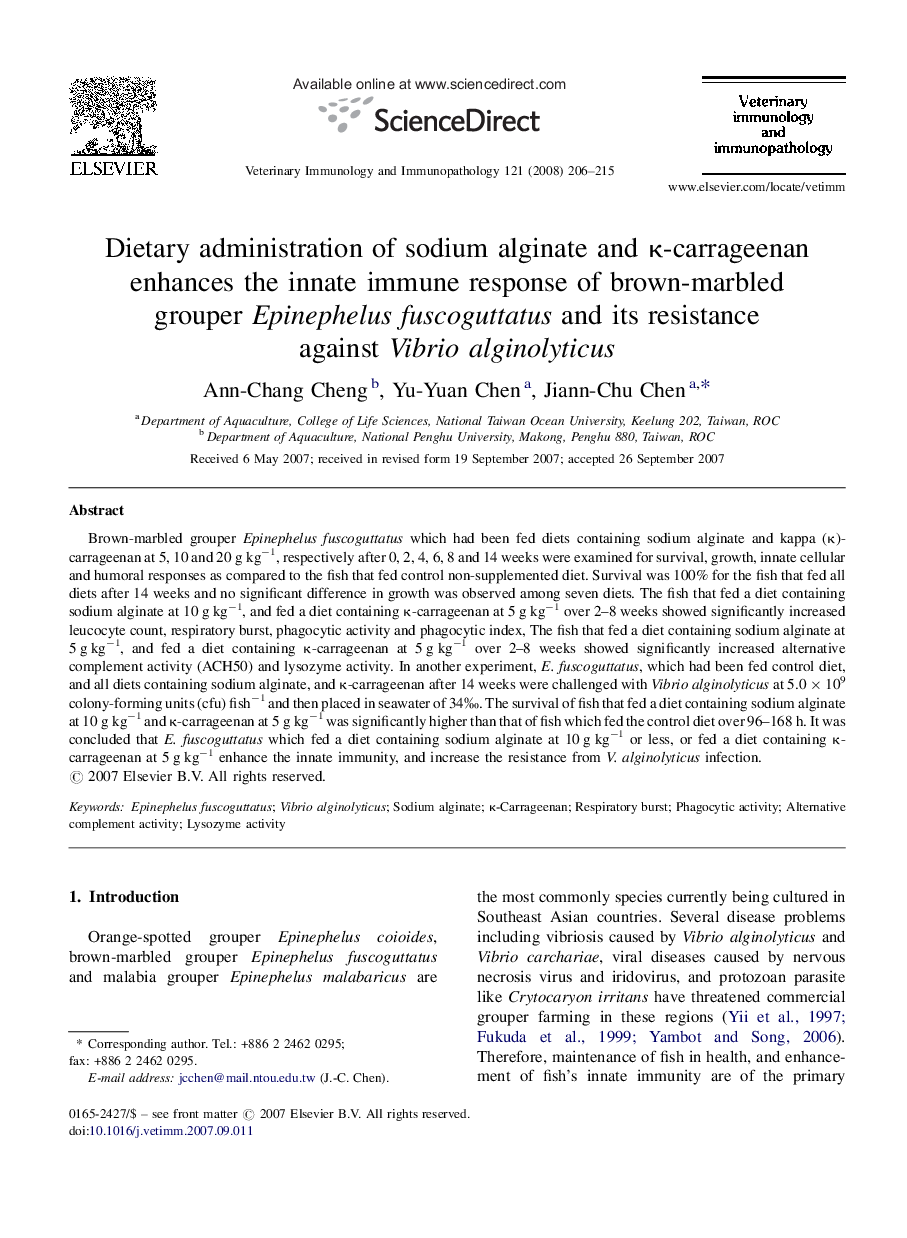| Article ID | Journal | Published Year | Pages | File Type |
|---|---|---|---|---|
| 2462824 | Veterinary Immunology and Immunopathology | 2008 | 10 Pages |
Brown-marbled grouper Epinephelus fuscoguttatus which had been fed diets containing sodium alginate and kappa (κ)-carrageenan at 5, 10 and 20 g kg−1, respectively after 0, 2, 4, 6, 8 and 14 weeks were examined for survival, growth, innate cellular and humoral responses as compared to the fish that fed control non-supplemented diet. Survival was 100% for the fish that fed all diets after 14 weeks and no significant difference in growth was observed among seven diets. The fish that fed a diet containing sodium alginate at 10 g kg−1, and fed a diet containing κ-carrageenan at 5 g kg−1 over 2–8 weeks showed significantly increased leucocyte count, respiratory burst, phagocytic activity and phagocytic index, The fish that fed a diet containing sodium alginate at 5 g kg−1, and fed a diet containing κ-carrageenan at 5 g kg−1 over 2–8 weeks showed significantly increased alternative complement activity (ACH50) and lysozyme activity. In another experiment, E. fuscoguttatus, which had been fed control diet, and all diets containing sodium alginate, and κ-carrageenan after 14 weeks were challenged with Vibrio alginolyticus at 5.0 × 109 colony-forming units (cfu) fish−1 and then placed in seawater of 34‰. The survival of fish that fed a diet containing sodium alginate at 10 g kg−1 and κ-carrageenan at 5 g kg−1 was significantly higher than that of fish which fed the control diet over 96–168 h. It was concluded that E. fuscoguttatus which fed a diet containing sodium alginate at 10 g kg−1 or less, or fed a diet containing κ-carrageenan at 5 g kg−1 enhance the innate immunity, and increase the resistance from V. alginolyticus infection.
